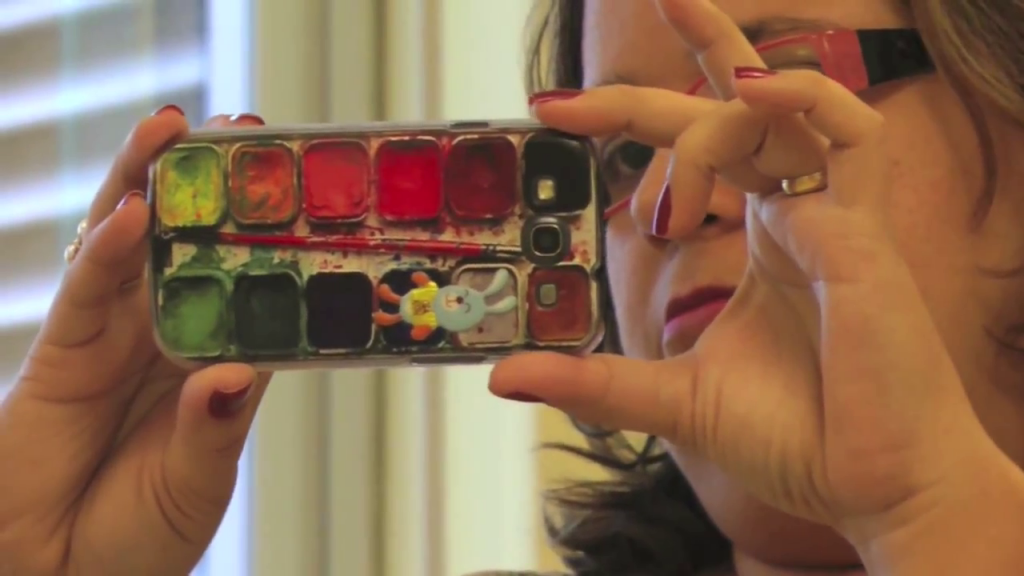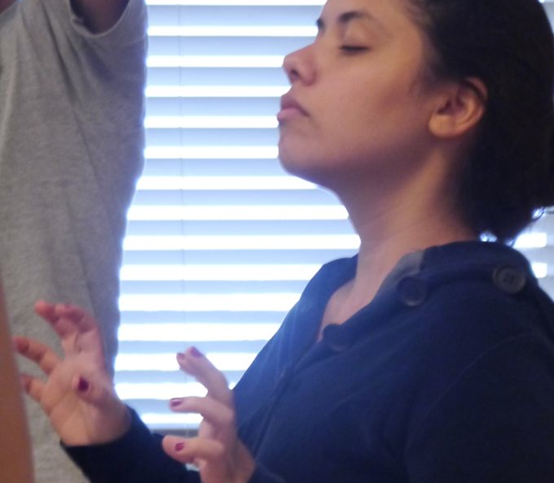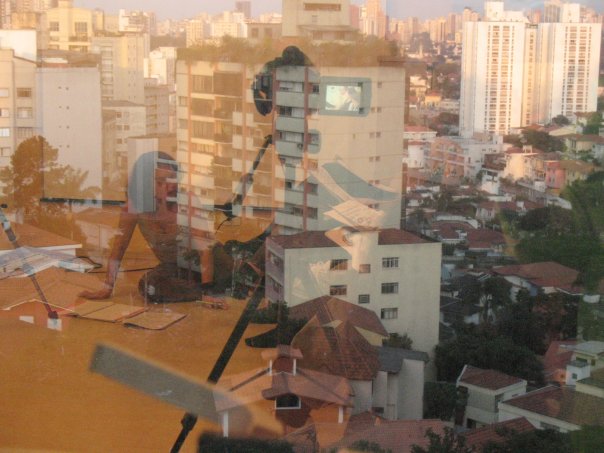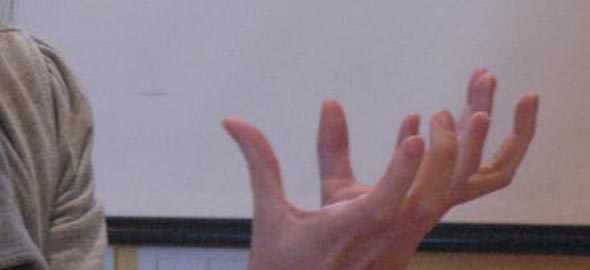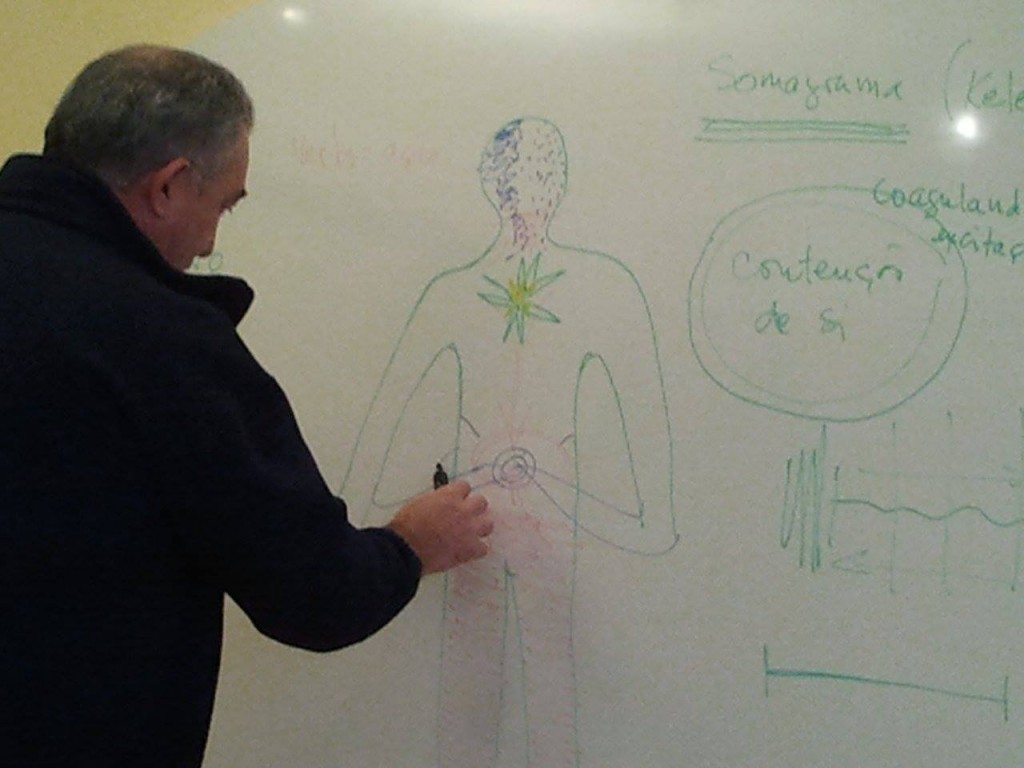https://laboratoriodoprocessoformativo.com/2014/07/na-instalacao-didatica/
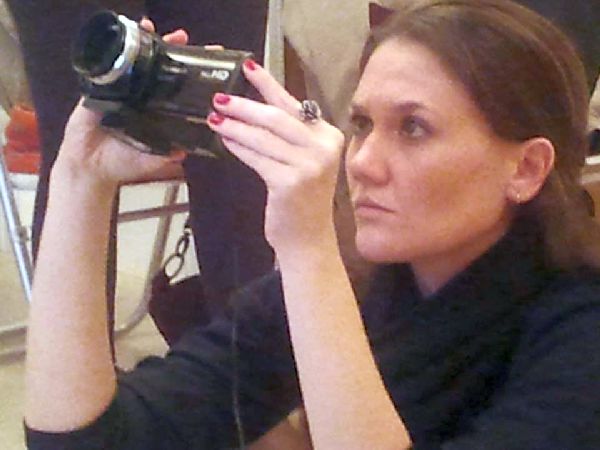
In naming didactic installation, the process that I discuss in this post, I am firstly expressing my admiration towards Joseph Beuys, the creator of this expression, as well as the deep feeling of identifying with the spirit of his art, his blackboards, his concept of social sculpture. And secondly, I affirm the absolute necessity of using aesthetic tools for the teaching and the studying of the body and of the formulation, as well, of an anatomy opened to mutation, its actions, its power, its multiple environments, its networks, its processes of subjectivation. To show somatic reality in continuous production of itself and to fight the clichés of health, beauty, power, celebrity, eternalization that have dwarfed its functionality and power of singularization, is a task that requires a delicate interweaving of expressive languages and resources.
A Collective Intelligence
When we look at the many posts on this site, we probably don’t realize the huge amount of activities and conditions necessary for them to be carried out: proposals, financial, technological and human resources, mobilization of students, support for a certain infrastructure and many other aspects. If we just wanted to describe a few moments from one seminar meeting at the Laboratory of the Formative Process and we were to recount everything that composed that present where the bodies were being formed in real time, both visible and invisible, we would need the skill of a great novelist and an infinity of pages. We could, for example, start with the group room, its adaptation, the equipment, the installations, the noise-proof, mirrored windows, the white floor where the normal actions of people appear as sculptures of themselves, the wires, the chips, the lighting, the big world out there constantly being thought of … In addition, we would describe the action of the camera, of the reporter, of the transcription and recording systems used, the mappings on the whiteboard that I call eggs, the displays on the big screen, the television, in the egg itself where the images of bodies can be redesigned and understood in their form-function relationship. The wiring, the internet where we get so many videos on science, behavior, art, in order to compose with our cognitive environment… the editing programs that transform the event, that are captured in posts with images and text to be published on the site or become hand-outs to be reworked and multiplied in the groups. These capturings through image and text, even more surprisingly, that will feed in real time, on Facebook, the private groups of each group where students find excerpts of what is said, scenes, photos, theory, dialogues from the group event at the didactic installation (which sometimes we call aquarium) that can be reviewed, studied, and democratically used by them. This agile, complex, and relatively inexpensive strategy emphasizes the evidence that we live and form our lives, continually, in ecologies … we are not only part of families, but also of physical, affective, cognitive, technological, political, social, and informational networks. It is this effect that I seek with the articulation of heterogeneous elements that I call didactic installation. The content is not separated from what is lived, recorded, practiced, the installation itself and the actions that support this production. It is all self-evident. This is the event-seminar where bodies are immersed. Since the ’60s, when I was still but a girl, Marshall McLuhan’s lapidary phrase never ceased to impact me: the medium is the message. In this sense, showing and emphasizing the teaching facility, its media, its assemblage of resources that infinitely go beyond the individual, expresses, affects, and teaches as much as the cartographies that directs our work, philosophical, clinical, and pedagogical. We look and immediately grasp … Oh, yeah … and bodies respond to this complex and real environment … and it is from these responses that we extract the understanding of the body that is the object of our study …. and thus we go…
Making the Installation Work
It is necessary to practice and understand the body as a pulsating pump and learn to recognize oneself as part of multiple ecologies, to know yourself as a body in the multitude, to become aware of the collective intelligence. But all these concepts or, more precisely, these evidences cannot be seized, described, expressed in their movement of becoming, only intellectually. They only show up as pulsating in a crisscrossed capturing, through a feeling, in an act of physically present concreteness … Look at the Presence post on this site. Showing the collective intelligence of the didactic installation and the unfolding of strategies, practices and products in the group event teaches us directly that we are always giving body to the lived and feeding environments of which we are part. And that, consequently, it is possible to dissolve the exacerbated individualism of contemporary capitalism within us, maturing connective shapes, forming cooperative behaviors and modes of functioning, as part larger processes… being bodies in the crowd, jellyfish in the sea, pulsating pumps… pumping, thinking, acting, and producing networks that are evidently our reality …
Pumping oneself
I took the concept of pulsatory pump from Stanley Keleman’s Emotional Anatomy. In many posts on this site, I develop a vision of this evolutionary design by extending it to the conditions of our life in the global environment, as bodies in the multitude whose functionality resides exactly in the contention of oneself, in the autonomy and the hightened connectivity. Bodies are produced in a continuous embryogenesis, they weave themselves as an inside and an outside, a surface and a depth. The edges contain the excitement of the lived immersed in the event. Bodies are made in event-environments throughout their formative history, in gradients of more or less consistency, more and less excitation … Bodies are configured with tissues, they show more or less maturation, more or less power to absorb the present event and form more or less precise structures with what is lived. Bodies clearly show what they live. The more bodies are finely connected to the elements and flows that compose their present, the more they are able to pump their ecologies , the more powerful they become… The HOW is the key for us to understand the actions of bodies and for us to recognize how bodies, how we do what we do with our form to sustain presence. The HOW concept is taken also from Stanley Keleman’s. Our life work is to structure our modes of functioning in relation to the present, in a unique way, in the self-productive momentum of bodies. Learning and practicing. Not for a moral reason, but because, well articulated and in more updated forms, life is channeled and functions finer in us and in our ecologies. With the intentional practice of the HOW, we can learn to manage edges, attract environments with the internal vacuum, absorb them and pump them back as a connective expression of oneself. Recognition and management of edges and excitement are central to the maturation of our real condition as part of the larger processes. The living alphabet is binary: expansion and contraction, in almost infinite amplitudes and forms. We grow throughout life, being able to complexify connection from fusion to cooperation… from absolute dependence to cooperative autonomy… this concept simultaneously psychological, political, and biological, is a concept that only exists when practiced. Interventions, as we shall see below, occur in the group encounters not as a clinical practice in itself, but as a clinical help for a body to be able to keep in aligning itself more and more finely with the formative process that it pursues. Our master is the jellyfish. See the video Embodiment in Buenos Aires on this site.
Exercising the pulsatory pump: language in action.
1. Identifying what it is:
Student – It’s difficult for me to stay with my body. It’s very difficult. I prefer not to think about it… it’s too much information… it’s really crazy… very opposing forces… super-excitation…
2. Identifying how it is:
Regina – put your feet on the floor…
Student – I feel comfortable squeezing myself, I always have my hand by my mouth.
Regina – you continued to acquire intensity since your work in the group a year ago. From that empty depth you experienced at that time, you kept on filling yourself with your intensity and excitement… currently, it seems that you are generating and managing intensity in a different way.
Student – I feel much stronger and more present…
3. Identifying a formative path:
Regina – at that time ,there was a body in need, more as if it were emptied of itself… that’s what that work was about… and, there, you finished by grabbing life with force… the last images from that recording show this. Now the question is different… you are not able to handle the shaping of your intensity with your edges and, then, you feel embarrassed.
Student – Yes. There is a shy surface (hand hides her mouth)… but now I want… I can feel myself overflowing and I don’t know what to do.
4. Identifying oneself with the pulsatory pump:
Regina – let’s experience this big movement… sit big… give yourself space… you are going to savor big, savor this wave that goes outwards and backwards… the pumping of your thorax… please, intentionally contract and let it expand by itself. You want a lot from life… I want more, I want more… take this on for yourself… everything… the action for yourself becomes clear out of the pulsatory pump, pumping in the environment… (mouth and arms open big… expansion) I want to grab life with all me … hands… mouth…
5. Identifying oneself with the WHO of the pulsatory pump’s actions
Student – I am already happy… that’s how everything becomes ok…
Regina – keep this pulse inside, allow the intensity to happen there so you can live the experience that you can live.
Student – (cries) – that hurts… I need to comfort myself… (Student comforts herself).
Regina – yes, doing a kind of little pillow with hands… that’s how you take yourself back… yes, you can comfort yourself from the big emotional wave that is just being able to expand with the shape you currently are…
Regina – this time, you are able to remove yourself and comfort yourself… going and coming back… you begin to organize contraction in your form, a form whose tendency, still immature, is naw only expansive… as you learn this, you begin to create contraction and form more surface tone.
Student – it is very good to know that I can go and return…
Regina – yes… you begin to call yourself back… come back here… expanding over the environment and now returning… taking care of yourself… welcoming yourself… these are actions of the pulsatory pump in its process of maturing, completing the cycle of expanding and contracting, feeding intensity, strengthening the edges…
Student – yes, it was good to do that.
Reporter – in her past recordings, several years ago, there was also a gesture of holding her face. Today, this has been shown again. And then, the comforting gesture appeared. In building up of the contraction, she now has two gestures.
“the gestures, the experimental moldings of the pulsatory pump, the verbs, the many subjects of the verbs, constructing who we still are not, practicing our art of common people, in our existential installations…
